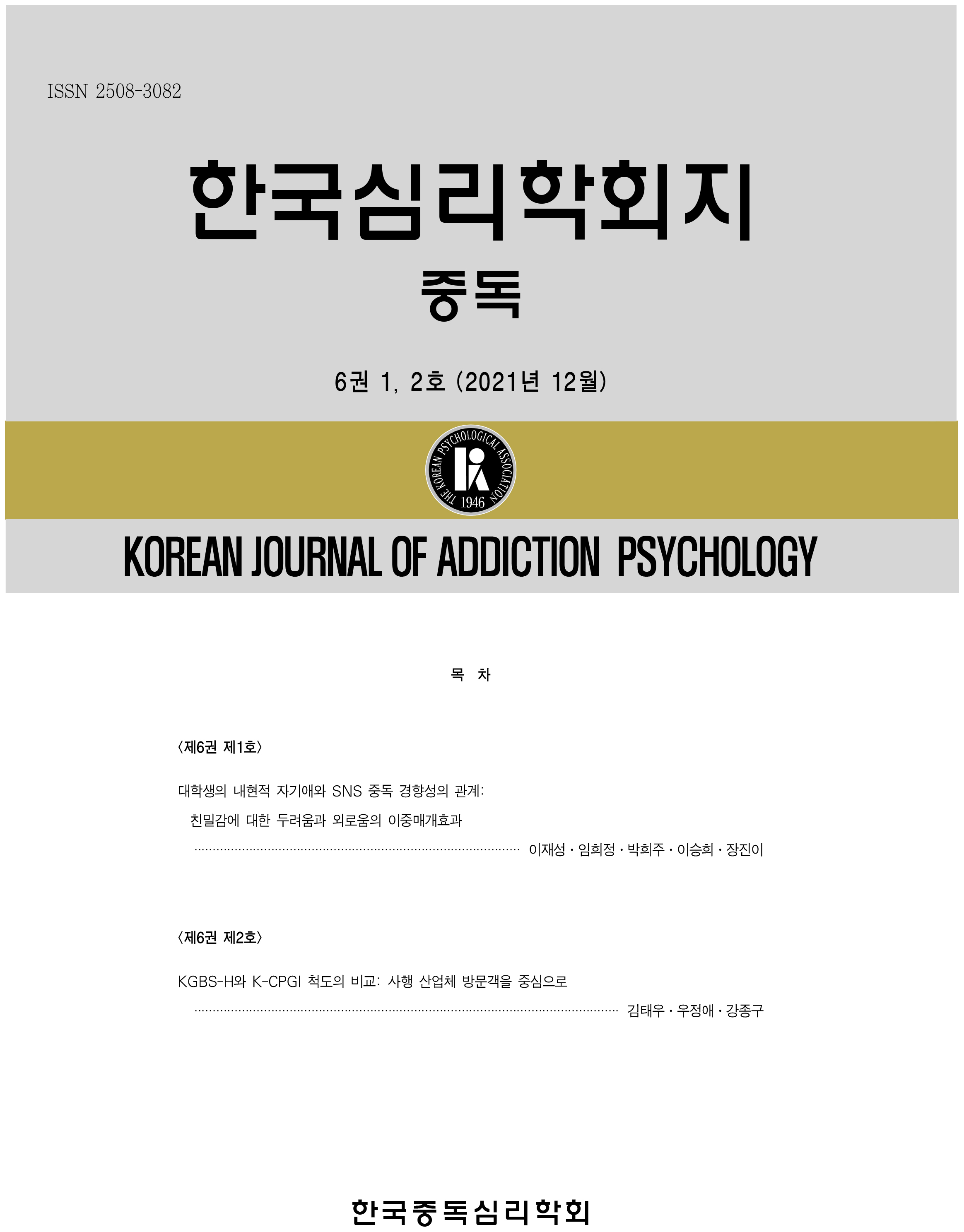- 권한신청
- P-ISSN2508-3082
아동의 완벽주의와 우울의 관계에서 자아탄력성의 조절효과
The Moderating Effect of Self-Resilience on the Relationship Between Children's Perfectionism and Depression

초록
본 연구에서는 아동의 중독 문제와 관련 있는 우울 정서를 이해하기 위해 첫째, 아동의 완벽주의 하위차원과 우울, 자아탄력성의 관계, 둘째, 아동의 완벽주의 하위차원과 우울과의 관계에서 자아탄력성의 조절효과를 검증하고자 하였다. 이를 위해 충남 소재 초등학교 5, 6학년 아동 316명에게 아동의 완벽주의 척도, 우울척도, 자아탄력성 척도를 사용하였다. 본 연구를 검증하기 위해서는 SPSS 21.0을 사용하여 피어슨의 단순상관분석, 위계적 중다회귀분석을 실시하였다. 그 결과는 다음과 같다. 첫째, 자기지향 완벽주의와 사회부과 완벽주의 모두 우울과 유의한 상관이 있었고, 자기지향 완벽주의와 자아탄력성 간에는 유의한 정적상관이, 사회부과 완벽주의와 자아탄력성 간에는 유의한 부적상관이 나타났다. 둘째, 자기지향 완벽주의와 우울과의 관계에서 자아탄력성의 조절효과가 나타났다. 이외 사회부과 완벽주의와 우울과의 관계에서도 자아탄력성의 조절효과가 나타났다. 이러한 결과는 완벽주의로 인해 우울을 호소하는 아동들에게 자아탄력성을 증진시키는 것이 중요하며 자아탄력성 증진이 우울 문제를 개선하고 중독을 예방하는 데 활용될 수 있음을 시사한다.
- keywords
- 자기지향 완벽주의, 사회부과 완벽주의, 우울, 자아탄력성
Abstract
The purpose of this study is to investigate the moderating effects of self-resilience on the relationship among self-oriented perfectionism, socially -prescribed perfectionism and depression of children. The subjects of this study consisted of 316, elementary school students from 5th and 6th grade. To measure the level of depression, Children Depression Inventory was used. The Resilience Scale was used to measure the level of self-resilience. Children' Perfectionism Scale was used to measure the level of perfectionism. To analyze statistical results, correlation analysis and hierarchical regression were used. The results indicate that depression and is negatively related to self-resilience. Self-oriented perfectionism and socially-prescribed perfectionism are positively related to depression. In other words, the more negative perfectionism, the greater the levels of depression and self-resilience. The results also indicate that self-resilience functions as a protective factor for children who have problems with depression in their self-oriented perfectionism and socially-prescribed perfectionism. Therefore, this study provides the importance of the development for self-resilience program to reduce the depression which causes perfectionism.
- keywords
- depression, self-oriented perfectionism, socially-prescribed perfectionism, self-resilience
- 투고일Submission Date
- 2016-10-10
- 수정일Revised Date
- 2016-10-21
- 게재확정일Accepted Date
- 2016-11-16
- 다운로드 수
- 조회수
- 0KCI 피인용수
- 0WOS 피인용수


